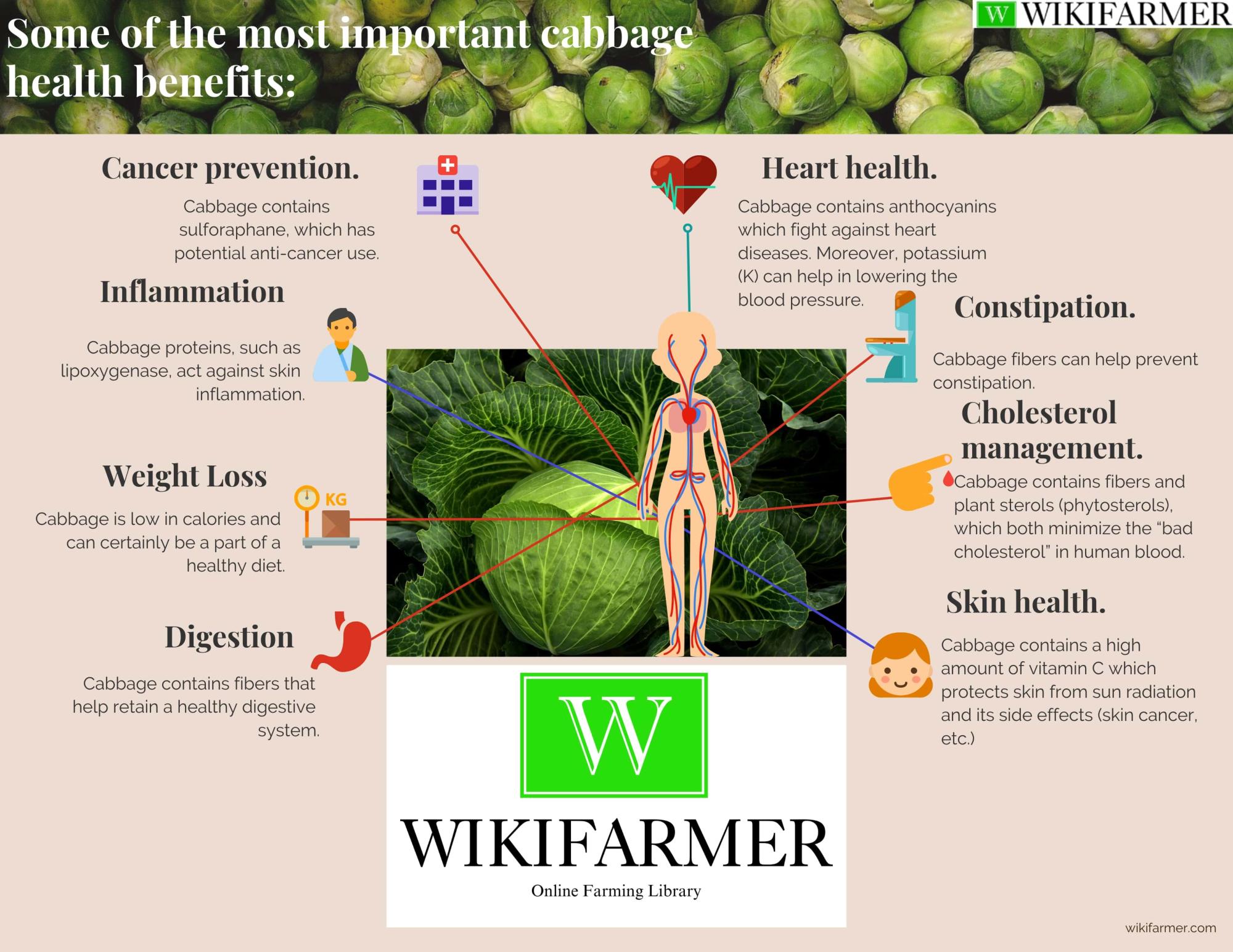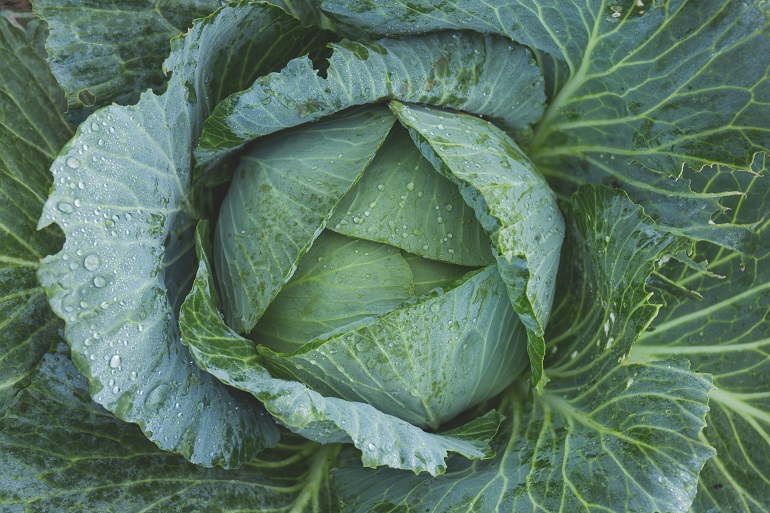Cabbage is a widely known commodity, estimated to be originated in Europe. However, in late centuries, cabbage production became popular around the world. Nowadays, it mainly grows in Asia and secondly in Europe. The Top 5 cabbage producing countries are the following:
- China
- India
- Russia
- Japan
- South Korea
Cabbage weight can range from 0,4kg to over 50kg (0,88 to 110 lbs.). Most mature cabbages weight from 0,5 to 1,5 kg (1,1 to 3,3 lbs.). The average large cabbage head weighs 1,1 kg (2,4 lbs), the medium head normally weighs 0,9 kg (2 lbs) and the small head normally weighs about 0,8 kg (1,7 lbs).
We can consume cabbage as fresh or include it in salads, soups, and sandwiches. People can also cook cabbage by steaming. Cabbage is a nutrient-rich and exceptionally healthy food, with a high concentration in water (more than 92%).
Leafy vegetables, such as cabbage, provide the human body with essential nutrients that boost our immune system and help us remain healthy. It is highly recommended for athletes and people who want to lose weight, as it is a low calorie food. According to the USDA, 100 grammars of cabbage contain just 23 kcal. Cabbage can offer us proteins, minerals, iron and be a great source of vitamins (vitamin K, vitamin C, etc.).
Cabbage Nutrient Values and Weights
According to the USDA, 100g of raw cabbage contains;
- 23 calories.
- 92,57g water
- 1,27g protein
- 0,06g of total lipid (fat)
- 5,5g carbohydrate
- 1,9g fibers
- 2,79g sugars
- 48mg Calcium
- 196mg Potassium
- 33mg Phosphorus
- 37,5mg Vitamin C
- 80 IU Vitamin A
- 108,7μg Vitamin K
Benefits
Cabbage has been reported as one of the healthiest foods in the world. It is a beneficial food that not only provides us with nutrients but also helps us remain healthy.
Some of the most important cabbage health benefits:
- Cancer prevention. Cabbage contains sulforaphane, which has potential anti-cancer use.
- Inflammation. Cabbage proteins, such as lipoxygenase, act against skin inflammation.
- Weight Loss. Cabbage is low in calories and can certainly be a part of a healthy diet.
- Digestion. Cabbage contains fibers that help retain a healthy digestive system.
- Heart health. Cabbage contains anthocyanins which fight against heart diseases. Moreover, potassium (K) can help in lowering the blood pressure.
- Constipation. Cabbage fibers can help prevent constipation.
- Cholesterol management. Cabbage contains fibers and plant sterols (phytosterols), which both minimize the “bad cholesterol” in human blood.
- Skin health. Cabbage contains a high amount of vitamin C which protects skin from sun radiation and its side effects (skin cancer, etc.)








